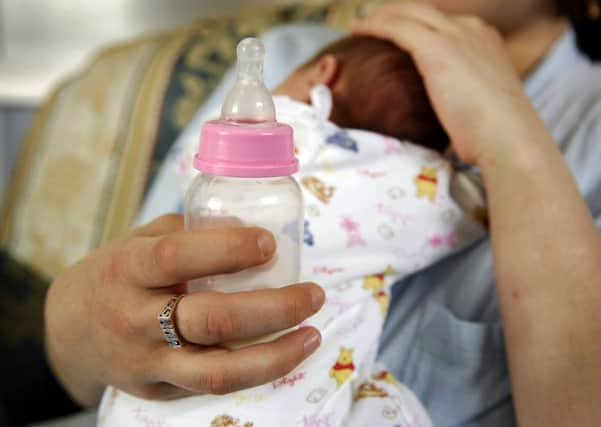Mothers of stillborns likely to lose another child


Stillbirth rates have declined across most of Europe in recent years but there were 3,286 babies stillborn in the UK in 2013. Scotland has one of the highest rates of stillbirth rates in the developed world, with one in 200 pregnancies ending in a stillbirth.
Experts from Aberdeen University collected data from a number of studies conducted in high income countries including Scotland, Australia, Denmark, Israel and the Netherlands to examine the link between stillbirth in an initial pregnancy and the risk in the women’s second pregnancy.
Advertisement
Hide AdAdvertisement
Hide AdDr Sohinee Bhattacharya, a lecturer at Aberdeen University, said: “Stillbirth is one of the most common adverse obstetric outcomes and a traumatic experience for parents. Couples who have experienced a stillbirth need to understand why it happened and want to know the risk for future pregnancies.”
Data was collected from around 3.4 million women who had previously given birth and were pregnant again, of which 24,541 had experienced a stillbirth in an initial pregnancy.
Stillbirths occurred in a subsequent pregnancy for 14,283 women in total – 606 of whom had had an initial stillbirth, giving a 2.5 per cent risk of a repeat stillbirth. There were 13,677 stillbirths in total among the almost 3.4 million other women with no history of stillbirth, giving a 0.4 per cent risk.
The researchers adjusted the figures for factors such as maternal age, maternal smoking and level of deprivation, and the increased risk of a repeat stillbirth was found to be fourfold higher.
In a report published today in the British Medical Journal, the research team argued that pre-pregnancy counselling services should be provided to women who had a stillbirth, as well as advice on changing lifestyle factors such as smoking and obesity that are both linked to an increased risk of stillbirth.
Pregnancies should also be closely monitored, and antenatal interventions and care be offered at the first sign of increased risk of distress or danger, the report added.
Janet Scott, research and prevention lead at the charity Sands, said: “Any mum whose baby has died in pregnancy will already feel extremely anxious in a subsequent pregnancy, and sadly this new study makes clear that she may indeed be at a higher risk of it happening again.
“Women need the reassurance that everything possible is being done to avoid this terrible tragedy recurring.”
Advertisement
Hide AdAdvertisement
Hide AdShe added: “We welcome this important piece of research with its powerful analysis of a very large number of women who’ve experienced a stillbirth.”
The definition of stillbirth was foetal death at more than 20 weeks’ gestation or a birth weight of at least 400g.